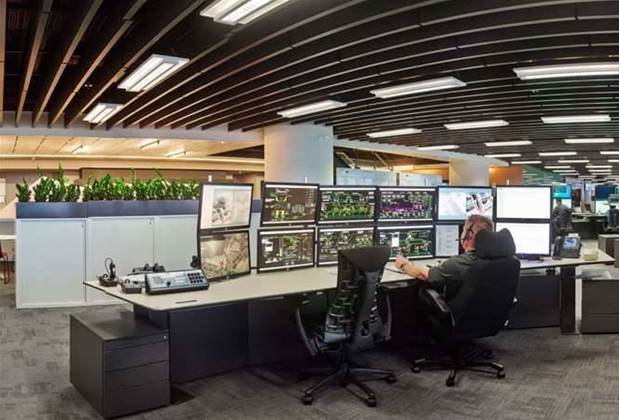BHP Billiton is creating an integrated remote operations centre (IROC) in Brisbane for its coal business, expanding a concept and operating model it pioneered in iron ore.

The project was quietly revealed in a Youtube video on the same day BHP provided an update to the market on its coal business last month.
The market update made no mention of the IROC. However, BHP Billiton has used the fortnight since to begin scaling up its capability and staffing.
In a series of job advertisements, BHP Billiton said the facility would be “world-class” and “state-of-the-art”, delivering “an advanced control room which will operate 24 hours a day, seven days a week.”
Among the first batch of roles being recruited are for an analysis and improvement team.
“[The] team's core function will be to identify improvement opportunities and implement projects across a number of large scale, complex operations,” the miner said.
“These teams [sic] will consist of specialists in training, fleet management systems, control systems, process engineering and reporting.”
Also being sought are controllers who will be responsible for “working collaboratively with the site based production teams to optimise safe production against operational plans.”
The Courier Mail reported that the coal IROC could ultimately house some 200 staff and that – as in its Western Australian operations – it would be used to introduce a higher degree of automation to mine sites.
BHP Billiton began operating its first IROC facility in early 2013. Based in Perth, the facility runs control systems covering the company’s iron ore mines, plant, trains and ports, as well as fleet management and scheduling systems.
It was established to increase the availability and utilisation of BHP Billiton Iron Ore’s existing assets, the company said in a 2015 video.
“The [iron ore] IROC enables our planning, scheduling, controlling and analysis teams to perform their jobs more effectively in one central location,” BHP Billiton said.
“This proximity allows effective coordination across the production network and an increase in system throughput.
“Staff from across the supply chain can collaborate more effectively than ever before as they look at the same data at the same time to make the most appropriate decisions to optimise value throughout the supply chain.
“The IROC allows the entire business to work towards one single integrated schedule.”
However, it is likely to provide strong assistance in the coal business’s goals to “unlock further productivity, reduce costs and release latent capacity” in its coal operations.


.png&h=140&w=231&c=1&s=0)

_(23).jpg&h=140&w=231&c=1&s=0)






 iTnews Benchmark Awards 2026
iTnews Benchmark Awards 2026
 iTnews Executive Retreat - Security Leaders Edition
iTnews Executive Retreat - Security Leaders Edition
 iTnews Cloud Covered Breakfast Summit
iTnews Cloud Covered Breakfast Summit
 The 2026 iAwards
The 2026 iAwards












_(1).jpg&h=140&w=231&c=1&s=0)



